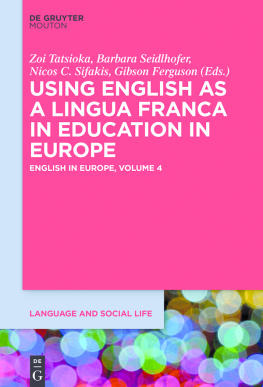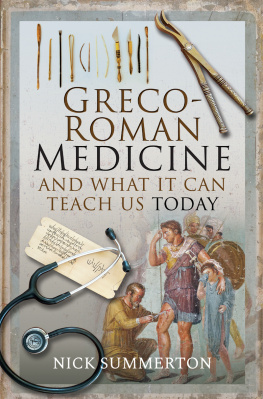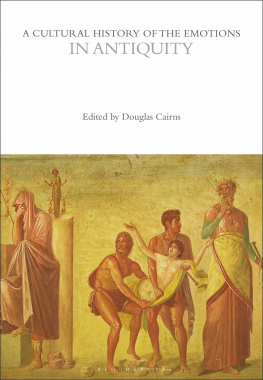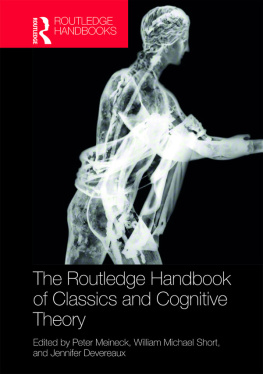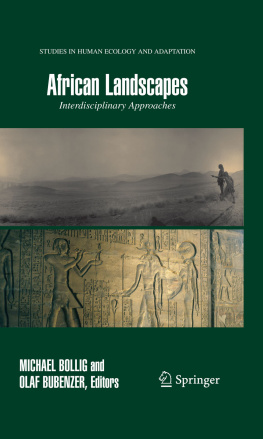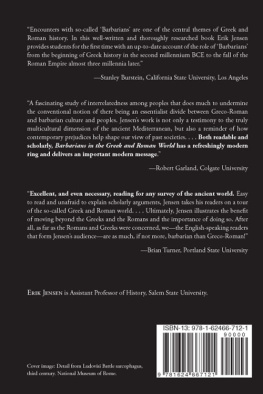
LANDSCAPES OF WAR IN GREEK AND
ROMAN LITERATURE
Also available from Bloomsbury
LUCANS IMPERIAL WORLD
edited by Laura Zientek and Mark Thorne
WAR AND PEACE IN THE WESTERN POLITICAL IMAGINATION
by Roger B. Manning
WAR AS SPECTACLE
edited by Anastasia Bakogianni and Valerie M. Hope

CONTENTS
William Brockliss is Associate Professor of Classics at the University of WisconsinMadison. He studies interactions between Greek and Roman texts and the natural environment, as reflected in his monograph, Homeric Imagery and the Natural Environment (Center for Hellenic Studies, 2019). He has also published on topics such as the nightmare (Illinois Classical Studies 2017), monstrosity (Classical Journal 2018) and the abject (D. Felton, ed., Landscapes of Dread, 2018), in preparation for a second book, Horror in Ancient Epic.
Virginia Fabrizi obtained her PhD at the University of Udine and held postdoctoral positions at the Freie Universitt Berlin and the Ludwig-Maximilians-Universitt of Munich. She is currently working as an Italian teacher in Munich and is affiliated with the University of Pavia as a Cultore della materia in Classical Philology. She published a book on the representation of Roman history in Enniuss Annales entitled Mores veteresque novosque: rappresentazioni del passato e del presente di Roma negli Annales di Ennio (2012) as well as several articles on Livy, in particular on the narrative construction of space in the Ab Urbe Condita.
Andrew Feldherr (PhD Berkeley 1991) is Professor of Classics at Princeton University. He works on Latin Literature, with a particular interest in historiography and the poetry of the Augustan period. A main focus of his scholarship has been on how political and social forces transform conceptions of the function of literature during the Roman Republic and Empire.
Karine Laporte is a PhD candidate at Leiden University Centre for the Arts in Society. Her dissertation is on narrative patterns in ancient historiography and, in particular, how Herodian engages with this practice in the History of the Roman Empire. She has forthcoming articles further exploring Herodians method of composition, specifically his use of imperial death notices (with O. J. Hekster) and of stock character types.
C. J. Mackie (PhD Glasgow) is Professor of Classics and Ancient History at La Trobe University. He has written widely on Greek and Roman topics, especially Vergil, Homer and Greek mythology. Much of his research focuses on the Trojan War, as told by the Greek and Roman sources, and the impact of these accounts on the later European tradition of war narratives. More recently he has developed interests in the Gallipoli region of western Turkey, and was on a three-nation team (Australia, New Zealand and Turkey) carrying out a historical and archaeological survey of the Anzac battlefield. He is a regular contributor to The Conversation.
Marian W. Makins (PhD University of Pennsylvania) is Assistant Professor of Instruction in Greek and Roman Classics at Temple University in Philadelphia. Her current research focuses on intersections between war, death and landscape in Roman culture and its reception. She has also published articles on classical receptions in the nonsense of Edward Lear, J. R. R. Tolkiens The Lord of the Rings and the Hunger Games trilogy.
Esther Meijer is a PhD candidate in Classics at Durham University (UK). She works on landscape and identity in Neronian and Flavian literature, with particular attention to intertextuality and rhetoric of empire. Further research interests include metapoetics, (poetic) geographies and Flavian panegyric, especially Statiuss Silvae. She is currently co-editing a volume with Mark Heerink on Flavian responses to Neros Rome.
Elizabeth Minchin is Emeritus Professor in the Centre for Classical Studies at the Australian National University, Canberra. Her research publications cover memory in its various aspects, whether personal, social or cultural, particularly as we observe its operations in the Homeric epics; landscape too is an interest, especially as it interlocks with memory. Her publications include Homer and the Resources of Memory: Some Applications of Cognitive Theory to the Iliad and the Odyssey (2001) and Homeric Voices: Discourse, Memory, Gender (2007) and numerous articles and book chapters.
Bettina Reitz-Joosse is Associate Professor of Latin Language and Literature at the University of Groningen (Netherlands). Her work focuses on the relationship between literary texts and material culture in the ancient Roman world and on the reception of Roman antiquity under Italian Fascism.
J. Z. van Rookhuijzen is a researcher and lecturer at the universities of Utrecht and Leiden (Netherlands) and member of the National Research School of Classical Studies (OIKOS). His doctoral work examined the role of memory in Herodotuss account of the Persian Wars, resulting in the monograph Herodotus and the Topography of Xerxes Invasion (2018). He currently investigates the archaeology and reception history of the Acropolis of Athens. This project, funded by the Dutch Research Council (NWO), traces the role of narratives in current ideas of the Acropolis temples and has been featured in National Geographic.
Jesse Weiner is Assistant Professor of Classics at Hamilton College (USA). He publishes broadly on Greek and Latin literature and its reception, with special interests in monumentality and memory, sexuality and gender, and aesthetics. In public humanities, his work has appeared in History Today and The Atlantic. He is co-editor of Frankenstein and Its Classics: The Modern Prometheus from Antiquity to Science Fiction (Bloomsbury Academic, 2018).
Laura Zientek is Visiting Assistant Professor of Classics and Humanities at Reed College. Her research focuses on the intersection of landscape representation and natural philosophy in Roman literature, with special interests in ecocriticism, biocosmology and horror. Her publications include analyses of the sublime, landscape aesthetics and depictions of mining. She is co-editor of Lucans Imperial World: TheBellum Civilein Its Contemporary Contexts (Bloomsbury Academic, 2020).
This book began as a panel on Landscapes of War which we organized for the Celtic Conference in Classics (CCC) in Montral in July 2017. We are grateful to the organizers of the conference for hosting our panel, and to all panel participants for extraordinarily lively, enthusiastic and productive discussions. We would like to mention specially those speakers who were unable to contribute to this volume, but whose insights benefited all of us in the writing and editing process: Jake Butera, Debbie Felton, Andrew Fox, Josie Rae and Roy van Wijk. We are also immensely grateful to Jenny Strauss Clay, who concluded our panel with a magisterial response that helped us draw the threads together and provided a great deal of inspiration for our introduction to this volume.
Both the CCC panel and this volume received generous funding from the Nederlandse Organisatie voor Wetenschappelijk Onderzoek (NWO) as part of Bettina Reitz-Joosses Veni project Landscapes of War in Roman Literature (project number 016.164.057). Finally, we would like to thank the editors and anonymous readers for Bloomsbury for their constructive feedback on our proposal and manuscript; Andrew Devine for his meticulous copy-editing of our manuscript; and Hylke de Boer for his invaluable assistance with the Index Locorum.
Next page

